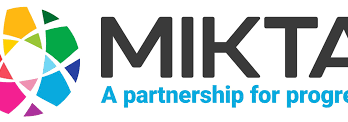About three weeks ago, social media platforms were filled with discussions on the topic of JAMB result forgery. It revolved around a teenager named Ejikeme Mmesoma, a student from Anambra state, who faced accusations of manipulating her result to obtain a score of 362. To cut the story short, the accused girl herself later admitted to forging her result and apologised to JAMB and the public.
Certainly, at first, the story seemed outrageous due to the unethical act of result forgery and the questionable motives behind it. One may wonder what someone could truly gain from resorting to such dishonest practices.
However, upon reflection, it becomes apparent that there are underlying issues that contribute to this behaviour. Unfortunately, it is not entirely surprising, as some bad elements have been promoting and encouraging exam malpractice from the very beginning.
Recently, I had a conversation with a young neighbour whom I knew to be a diligent student. However, I noticed an unprecedented change in him this time around, especially with his current NECO exams. Contrary to his previous studious habits, I never saw him engrossed in his textbooks or showing any signs of serious preparation. Intrigued by this sudden transformation, I decided to inquire about the reasons behind his changed approach during our discussion.
He openly revealed to me that he no longer finds it necessary to invest time in studying because he believes that exam answers will be provided to students during the actual test, making it easy for them to copy.
Additionally, he expressed a sense of unflinching helplessness, stating that even if he were to study, the teachers would not allow him to answer the questions independently.
Honestly, the assertions made by the young lad left me concerned about the future of our educational sector. It made me question the purpose of having students write exams like NECO and WAEC if the answers are going to be provided to them on the blackboard or if they are allowed to bring their phones to the exam halls to copy. It’s disheartening to think that we, as a society, may inadvertently be encouraging result forgery by tolerating such practices.
Gone are the days, when the Nigerian education sector was known for its sophistication, with students taking exams single-handedly, without the aid of the internet or any copying devices. This resulted in a generation of graduates who possessed a genuine sense of accomplishment and were able to confidently defend their certificates.
In a similar vein, I vividly recall an elderly man who wrote his exams in 1978 sharing his experience with me. Despite obtaining only three grades in West African Examination Council (WAEC) results, he took immense pride in the fact that he had achieved those grades through his efforts, without resorting to any form of cheating.
This person, with only a secondary school certificate, exhibited a command of impeccable English and wrote flawlessly, surpassing the language skills of many university graduates. This serves as a stark contrast to the present situation, where the quality of our educational system appears to have deteriorated greatly.
Now, let’s consider the current scenario and ponder how many of our graduates can competently write an application letter or speak in consummate English without making grammatical errors. It’s disappointing to observe that a considerable number of them lack these essential skills. Is this situation not undeniably linked to our prevailing attitude of tolerating and even promoting examination malpractice?
Once again, this reminds me of another discussion I had with someone working in the Ministry of Works, Yobe State. He told me about a Corp Member who was compelled to their office for the mandatory one-year service.
According to him, the corper, as we rightly called them, could not communicate effectively, despite graduating from one of the top-notch universities in the country. They even questioned the efficacy of his certificate.
For God’s sake, how do we expect to witness much-needed development while we normalize fraud and deception in our day-to-day activities? With parents bribing lectures to pass their wards and job offers being surreptitiously sold, instead of employing those who could deliver the job effectively.
Last year alone, the West African Examinations Council (WAEC) took strict action by delisting 50 secondary schools in Oyo state due to their involvement in examination malpractice during the 2022 Examinations.
Meanwhile, the National Examinations Council (NECO) has made a resolute commitment that schools found guilty of examination malpractices will face delisting for two years.
What is the way forward?
It is evident that despite efforts to bring exam supervisors to the exam hall, this educational setback persists as some individuals are unfortunately being paid off. The government must not turn a blind eye to this educational drawback and must take decisive action to address it.
E-examinations could undeniably reduce, if not eradicate, this high-level educational crime. Implementing serious measures is imperative to prevent the continuous production of unproductive graduates. This issue poses a notable obstacle to having qualified students who can effectively serve in various government agencies and non-governmental organisations, as they may not receive proper education at the grassroots level.
Producing futile graduates jeopardises the future of our country. It is pertinent for all of us to wake up and collectively fight against the prevalence of exam malpractice.
Kasim Isa Muhammad,
Potiskum, Yobe state




